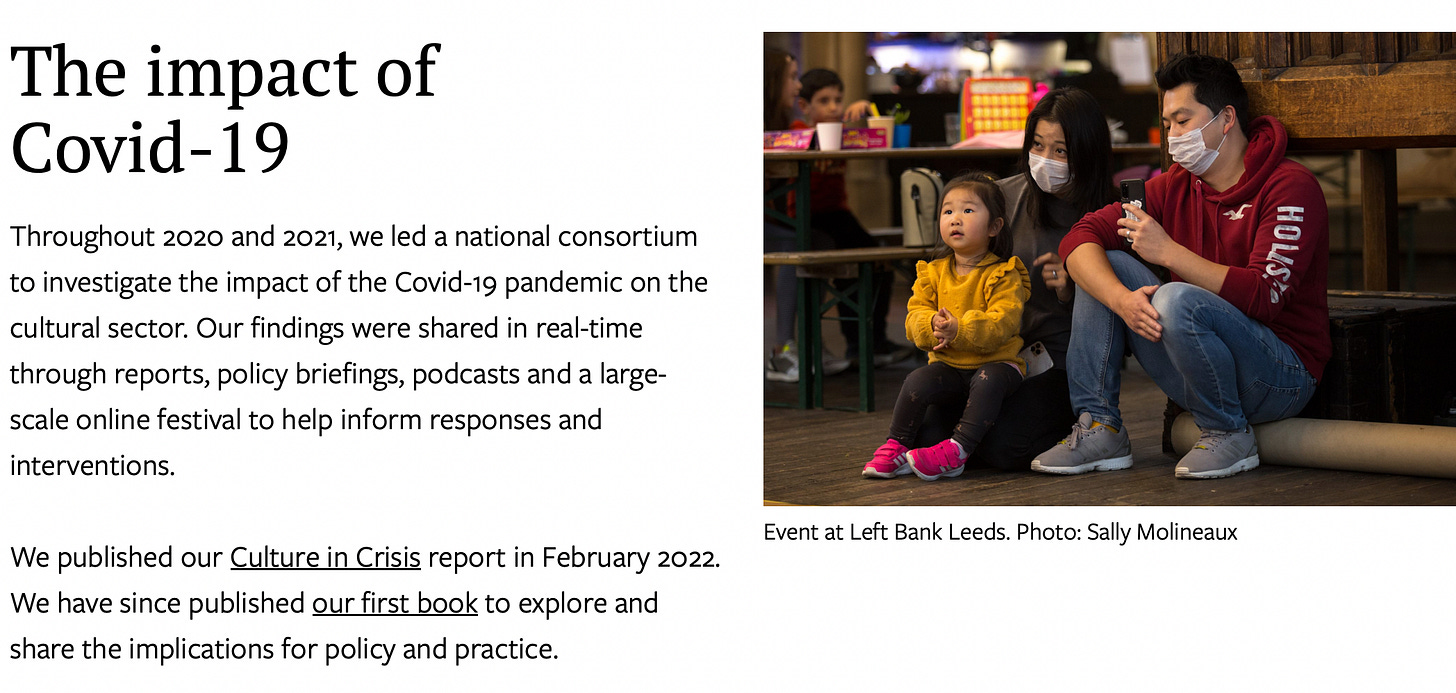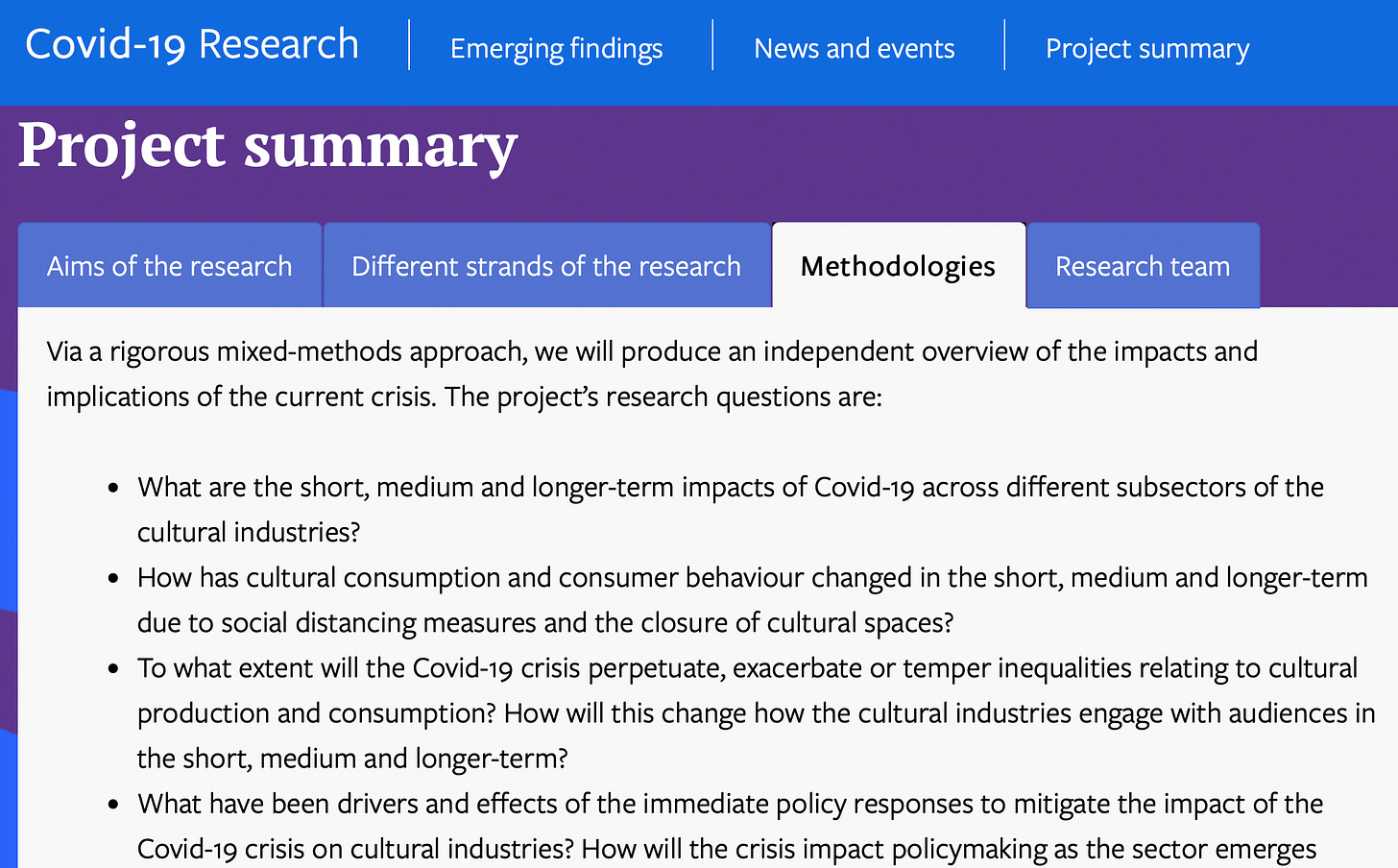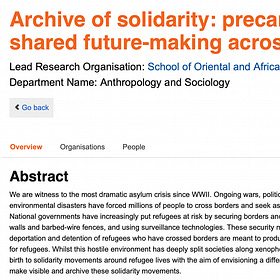The Austerity Awards 2024: Nominations are open for Best Woke Waste (£8m's worth)
Please vote for your favourite in these diverse nominations. Total value: £7,921,321
Please vote at the bottom for the one that brings the most amount of joy and enrichment to your life, as a British taxpayer.
Recent years have witnessed a growing world-wide interest in the role of the arts and cultural heritage in cultivating health and wellbeing. In the UK, for instance, the All Party Parliamentary Group for the Arts, Health and Wellbeing published a comprehensive report in July 2017 on the lifetime benefits of arts in health, making key recommendations to political leaders and healthcare professionals.
…
Mongolia and China's Inner Mongolian Autonomous Region (IMAR) represent an ideal comparative case study to explore the impact of political, economic and historical forces on the shaping of healing practices.
The project will work over three years in three locations; in the slum district of Walukuba/Masese in Jinja, in six rural villages in Kisumu County in western Kenya, and in Lincoln Green in Leeds, one of the most deprived areas of the UK with the highest population of African descent in the city…The work will draw on an arts-based methodology for both research and subsequent communication of findings within communities and to stakeholder and national arts communities, in relation to the schools and community programmes, building on expertise and positive impact created in preceding related projects.
£2,064,125 - Centre for Cultural Value
The project is especially interested in the representations of colonialism that the films in these collections embody, particularly in relation to race, gender, ethnicity, and culture. The project will achieve an in-depth view of the films held in each collection that will extend knowledge and understanding of film and its role in the making of the British empire.
There are increasing calls for access to imperial archives and the project will participate in, and organise, events providing forums for debate about decolonisation, reparation and restitution, particularly in relation to colonial film archives.
£761,286 - The Colour of Diversity: A Longitudinal Analysis of BFI Diversity Standards Data and Racial Inequality in the UK Film Industry *an AHRC-funded project, in collaboration with the British Film Institute, The Guardian and The UK Cabinet Office.
Through a robust programme of research that will including interviews, workshops, critical discourse analysis and textual analysis, The Colour of Diversity will foreground the significance of the Arts and Humanities for tackling social concerns such as social mobility and diversity. A principal research aim is to demonstrate the contribution of Screen Studies to sociological understandings of race and ethnicity and develop a theoretical interrogation of diversity policy as a critical form of social policy.
Techniques of close-reading will unpick the witness statements used to prosecute men who had sex with men, showing how and where they met and had relationships. Private correspondence, letters and diaries will reveal understandings of identity and desire for both men and women. An intensive trawl of the euphemistic local press, now digitised, will show how homosexuality was publicly represented.
Academic articles and a monograph will situate Northern Irish sexuality in the broader literature of 'queer theory' and Irish Studies, while a 1-day colloquium and edited volume will place Northern Ireland's experience alongside the other 3 of the 4 nations of the United Kingdom.
£311,002 - Indigenous Film Ecologies in India
While many Indigenous peoples in Colombia have always applied justice on their lands, it is only with the 1991 Constitution that the Colombian state recognized Indigenous jurisdiction on Indigenous land. However, many ways of Indigenous governing, justice practices, and Indigenous political structures have been lost over time through colonisation, while the 1991 Constitution both frames Indigenous legal systems and also constrains them by various conditions, too.
This project explores the migration of Romani ('Gypsy') groups between Germany and Britain between the 1880s and 1914. It studies and makes visible, through digital humanities methods, these widely overlooked migratory movements in a transnational perspective. It examines how the migratory space was structured through economic agency and individual action, media representation and public responses in detail, drawing on research in German, British, Polish and Dutch archives and on the extensive press coverage of the period.
GLoW3 seeks to interrogate, understand and foreground women, non-binary and trans (W, NB and T) contributions to the conceptualisation, commercialisation and creative potential of Web 3.0 screen-based media.
VOTE FOR YOUR FAVOURITE (NB 2 x polls):
More:
PAID EXCLUSIVE: How university grants quietly fuel Britain’s border crisis
Support Woke Waste, Defeat the Blob!





